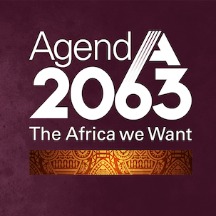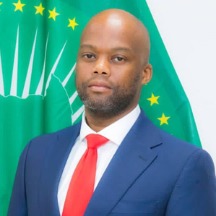“Who can we be without the diaspora?” opened African Union Ambassador to the USA Hilda Suka-Mafudze before an intimate group of Africanist at the swank, Black-owned
Swahili Village Bar & Restaurant in downtown Washington, DC. Supporting her affirmation of inclusion is the organizational structure of The African Union (AU), the successor organization of the Organization of African Unity (OAU).
Whereas the OAU was centered around African leaders, the AU is organized around African people, with six regions, five on the continent and the sixth being the African diaspora. The OAU was based in Addis Ababa, Ethiopia and the AU remains there.
At the center of the AU's plans is Agenda 2063. Formulated in 2013 during the Golden Jubilee Celebration of the OAU/AU, Agenda 2063 is Africa's blueprint and master plan for transforming Africa into the global powerhouse of the future in 50 years.
Rockford, Illinois USA native and President of the Washington, DC-based Constituency for Africa (CFA) Melvin Foote says he agrees with the AU's Agenda 2063 vision, but “also believes that the details, especially for Diaspora engagement, should be spelled out.”
AfCFTA took root in 2018, with trade commencing January 1, 2021 among 54 of the 55 African Union nations.
While remaining optimistic about 2063, the veteran advocate is equally concerned about thorough plans for 2022 and subsequent years as stepping stones to 2063. He also added, “In many respects I think we are moving backwards as far as Diaspora engagement is concerned.”
After ending colonialism and creating unity, the next step is “market integration,” said keynote speaker Wamkele Mene, Secretary General of the African Continental Free Trade Area (AfCFTA). The AfCFTA Secretariat is an autonomous body within the AU, but based in Accra, Ghana. Mene is charged with advancing 1 of the 15 flagship projects in the AU’s Agenda 2063, the establishment of AfCFTA.
AfCFTA took root in 2018, with trade commencing January 1, 2021 among 54 of the 55 AU nations. Eritrea is the only AU member nation not participating. (Morocco is the only African state that does not belong to the AU; therefore, not AfCFTA.)
Good and equitable trade relations are also at the cornerstone of CFA’s advocacy and that of Mene, who reminded the audience that the most recent former US president referred to homeland nations as ####hole countries. However, The South African native expressed pleasure for the Biden-Harris administration, saying, “the change we see is very encouraging.”
Part of Mene’s displeasure with the last US administration was that its African policy “was about China and Russia” and attempting to block their inroads into Africa; and not Africa. However, Mene says, “Africa is not a contested terrain.”
While the AfCFTA is also focused on intra-continental trade, he proudly spoke of the assembly of Volkswagens in South Africa that are exported to the United States and the 50,000 textiles and clothing jobs created in Lesotho via The African Growth and Opportunity Act (AGOA). AGOA is a United States trade act, enacted on May 2000 during the Clinton administration. The legislation significantly enhances market access to the US for qualifying Sub-Saharan African countries.
During African colonial times, Europeans made it easier for their colonies to trade with the “mother country,” rather than its own neighbors. Air travelers, for instance, often found it easier to fly from one African country to another via Europe. AfCFTA encourages intra-continental trade too, such as the
agreement between South African Airways and Kenya Airways to create a pan-African airline alliance and the building of the
Senegambia Bridge, which boosts trade between Mali, Senegal, Gambia, and Guinea Bissau.
However, Mene acknowledged Foote’s concern that instability in some countries such as in Mali and Guinea caused by coups will deter economic progress. Mene affirmed that the AU has been “very clear in condemning coup d’etats.”
Note: The 1619 Project aims to reframe American history by placing the consequences of slavery and the contributions of Black Americans at the very center of the United States' national narrative.
What You Can Do Now
1. When traveling, your expenditures are investments.
Travel to Africa on an African airline.
2. Look for clothes and footwear made in African countries
such as Lesotho.
3. Like tea? Try
Sarilla tea from Rwanda.
4. Shop
Zawadi, they specialize in African made products.
5. Via our non-profit, buy
Gambia River Soap.
6. Donate to the
Constituency for Africa.








